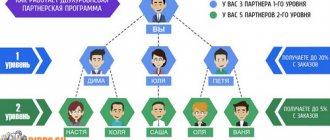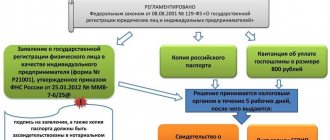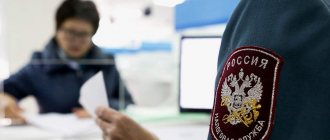Who is an IP?
An individual entrepreneur is a person who conducts business activities without forming a legal entity. The peculiarity of an individual entrepreneur is independent work with the aim of making a profit from performing certain actions, namely the sale of goods, the use of property and the provision of services. Citizens who have reached the age of majority and are legally capable can act as individual entrepreneurs. At the same time, registration of this form of activity is permitted both to citizens of the Russian Federation and to non-residents who permanently reside in the country.
Can a sole proprietor work with a combination of different types of activities?
Installation (installation) of products made of marble and granite (In Minsk there are many companies engaged in processing and manufacturing products from natural stone. I wanted to take orders from “Population” and give them to “stone processing enterprises” and take upon myself only the search for orders and installation of such products like window sills and table tops. In the classifier, only the activity type “Other services to the population” was suitable for me. Will I still be able to pay taxes under the Simplified taxation system (8% excluding VAT)? + since I do not have a permanent place of work, when opening an individual entrepreneur, I will also have to pay the Social Security Fund in the amount of about 250,000 rubles monthly, if I understand everything correctly. It is extremely difficult to get advice from us in Minsk - I’m already tired of going to the District Executive Committees, tax inspectorates and “Youth Entrepreneurship Incubators” again and again. grateful if you clarify.
What are the possible situations?
To understand whether an individual entrepreneur can simultaneously work in several directions, it is worth considering the following options:
- The entrepreneur does not operate. If an individual entrepreneur has passed the registration procedure, but does not work in the chosen direction, there is no need to pay taxes. In this case, submission of reports is a mandatory condition. This includes making payments of fixed contributions. In this case, reporting must be completed for a specific type of activity conducted by the entrepreneur.
If an individual entrepreneur works on the PSN and UTII taxation systems, he is obliged not only to submit reports, but also to continue paying taxes. Consequently, when working on a “patent” or “imputation”, you need to come to the Federal Tax Service and write an application to close the activity.
- An entrepreneur works in the chosen direction. During the registration process, the individual entrepreneur makes a choice of what type of activity he will engage in. If you choose only one option, everything is simpler here - you just need to choose a taxation system, and then, taking into account the requirements of the law, submit reports, pay taxes and fixed contributions.
Transition to online cash registers in 2020
Not all businessmen are required to use cash registers in their activities. There are options where you can do without them. But for the convenience of accounting, as well as saving time, individual entrepreneurs are better off keeping up with the times and actively using online cash registers.
In 2020, individual entrepreneurs who use the simplified tax system may not use cash registers in their activities in the following cases:
- The business of an entrepreneur is to provide services to the public (individuals). This includes hairdressers, auto repair shops, canteens, etc.;
- trade that is carried out in undeveloped market areas, leasing of real estate and everything else provided for by the law of the Russian Federation (the full list can be viewed on the official website of the INFS).
According to preliminary calculations, government agencies announce that in 2020, about 3 million individual entrepreneurs across the country should switch to online cash registers. This also applies to those businessmen who were required by law to do this earlier. In the previous year, individual entrepreneurs engaged in the sale of alcoholic beverages were required to start using cash registers, and all entrepreneurs were also prohibited from using ECLZ for reporting.
The introduction of online cash registers will be gradual and is planned for all businessmen, including individual entrepreneurs.
This bill is being implemented by the state for several reasons:
- significant reduction in fraud cases. It will become almost impossible for unscrupulous entrepreneurs to maintain “black” accounting;
- acceleration of financial reporting audit processes;
- improving the quality of work of the tax service.
Individual entrepreneurs, installing cash registers, receive their benefits:
- Simplification of financial accounting processes. When using cash registers, an individual entrepreneur automatically frees himself for several hours a day from adding up revenue amounts, average receipts, inventory balances, etc.
- Gaining the ability to control your business from a distance. You can analyze quantity, demand, sales of products, maintain financial statements and much more using online cash registers using the Internet.
Regarding the re-registration of equipment, there are several nuances. Those businessmen who already had a cash register need to contact the customer support service and undergo a consultation about whether it is suitable for further work under the new laws. If the equipment can be modernized, it is allowed to remain, but it must be re-registered. In most cases, it is easier and cheaper to buy new equipment.
To switch to an online cash register, a businessman needs to contact the territorial body of the INFS or do this through the official website of the government body (in this case, you need to have an electronic signature). To do this, he needs to submit an appropriate application to register the device. The state does not provide anyone with a free online cash register. This means that the businessman must purchase the device, as well as the fiscal drive (without which work is impossible), on his own. Before purchasing, he must check whether the equipment is registered on the tax service website.
Online cash registers for individual entrepreneurs who conduct business via the Internet
Previously, there were no clearly defined reporting rules for such entrepreneurs. Online stores must now also install online checkouts. But this doesn't apply to everyone. Those online stores that operate exclusively through cashless payments to individuals can use special-purpose equipment. In this case, you do not need to use a printer to print receipts.
The punishment for those who have not installed an online cash register is as follows:
- ban on conducting business activities for a period of 90 days. This applies to those businessmen who repeatedly (during the year) violated the law specified in the previous paragraph + a fine in the amount;
- 1500 – 3000 rub. for the use of technology that does not meet modern requirements. For individual entrepreneurs for 2020, who work according to the simplified tax system for all types of activities, it is necessary to install new online cash desks;
- 2000 rub. for failure to provide a check to the client in paper or electronic form.
As you can see, those who try to evade the law will be fined from 3 thousand rubles to 50% of the proceeds. This does not apply to cases where a businessman has taken all measures to install a cash register, but its full operation is delayed by the actions of third parties. This rarely happens.
A few recommendations for entrepreneurs
Businessmen who are interested in their business prospering and bringing the desired profit should listen to the advice of tax authorities:
- Do everything on time. You shouldn’t wait for a delay until 2020, but switch to online cash registers now to avoid fines from the state in the future.
- Follow the news. Every individual entrepreneur needs to subscribe to the INFS newsletter. This must be done on the official website of the government agency. This way, you can find out information about innovations or changes in legislation by e-mail.
- Do not carry out any business activity until you receive permission to do so. This means that you cannot conduct an unregistered business, as well as use cash register equipment that is not registered with the tax service.
You can get complete information on how to become an individual entrepreneur, which taxation system is best to choose for yourself, and where to buy an online cash register on the website of the INFS of the Russian Federation.
This is very convenient for those who are registered in one city and conduct business in another. You can also get advice from a tax specialist online or by calling a hotline.
Several types of activities and taxation
The situation is more complicated if the entrepreneur has chosen several directions. The following options are also worth considering:
- Individual entrepreneur works in several directions, but on one tax. In such a situation, when creating a report, it is necessary to indicate each type of activity in the UTII declaration. If an individual entrepreneur works in one city, then the declaration can be in a single copy. The report also includes a UTII payout sheet, and after the calculations are completed, the tax is paid. For example, a company sells air conditioners and provides equipment installation services. There are two types of activities here - sales and installation.
- The individual entrepreneur has “connected” several types of activities to different taxation systems. In such a situation, separate accounting of taxes is carried out. From the point of view of legislation, this is perceived as separate types of activity. For each of the areas, it is necessary to separately generate and submit reports, as well as pay taxes taking into account the profit received and the rate. As for the fixed contribution for himself, the individual entrepreneur does not pay it for each area of activity, but only once. It is worth noting that fixed payments are not tied to taxes at all.
Tax payments on the simplified tax system “income minus expenses”
This system is in less demand among individual entrepreneurs, but it also has its place and requires attention. The tax amount is calculated as follows: expenses are subtracted from the income taken into account and the resulting number is multiplied by 5-15%. The interest rate depends on the category in which the entrepreneur operates. During the period when the business is not actually running (out of season, simple etc.), calculations of income and expenses are not carried out.
Such taxes are beneficial for those whose number of expenses exceeds half (50% and above) of income. The Tax Code specifies all the nuances and advantages for individual entrepreneurs that are intended for this type of simplified tax system. You can familiarize yourself with them or consult a lawyer.
Not all expenses are taken into account when calculating taxes. Every businessman should know and take this into account.
So, here is a list of expenses that must be taken into account:
- rental or purchase of real estate for individual entrepreneurs, equipment, technical means, etc.;
- loans taken for business development;
- utilities, internet;
- operation and repair of equipment, computer equipment, cash registers, etc.;
- advertising;
- contributions and taxes for individual entrepreneurs.
This is important to know: Cadastral list for calculating property tax
The costs of using the services of webmasters are also taken into account. This applies to those entrepreneurs who have their own company website.
In 2020, government agencies will monitor individual entrepreneur contributions more closely, since according to data from previous years, businessmen often evade these payments or make incomplete amounts of fixed payments.
Additional directions
According to the law, individual entrepreneurs have the right to open primary as well as additional types of activities, of which there can be an unlimited number. The presence of additional directions does not interfere with the main work and does not entail the need to prepare new reports or pay other taxes.
Situations are possible when an individual entrepreneur puts his main activity aside and works only on additional activities. This is not prohibited by law, and there is no need to immediately go to the Federal Tax Service to change direction. It is better to wait some time and make adjustments to the types of activities for sure. An entrepreneur works in the direction that interests him at a certain moment. If you decide to engage in an activity that was not previously open, you need to go to the Federal Tax Service and make changes.
Can an individual entrepreneur engage in several types of activities?
- home
- Taxes
- Combining two types of activities
T. Bobrova (Moscow) 07/02/2017 Category: I want to open an individual entrepreneur with the simplified tax system of 6%, tutor. At the same time I want to rent out an apartment. Is it possible to combine two types of activities in one individual entrepreneur while paying a 6% tax? Registration, Individual Entrepreneur An individual entrepreneur can combine several types of activities, paying taxes according to the simplified tax system, since these types of activities (tutor and renting out an apartment) fall under the terms of Art. 346.12 of the Tax Code of the Russian Federation, i.e. are not on the list of prohibitions on the right to use the ONS. In addition, one more condition must be met - your profit should not exceed 112.5 million rubles. income based on the results of 9 months of the previous year.
What's the result?
If an individual entrepreneur operates within the generally accepted tax regime, there are no restrictions on the types of business activities. The Tax Code of the Russian Federation, Article 428, paragraph 1, specifies the types of work that cannot be used within the framework of a special regime. For example, retail trade and rental do not fall into this category and can be processed using a simplified declaration. If an individual entrepreneur decides to change or add a type of activity, he must contact the Federal Tax Service, fill out an application and make the required changes in this way. There is only one result - an individual entrepreneur has the right to engage in several types of activities. The main thing is to arrange it correctly.
Can a sole proprietor work with a combination of different types of activities?
Thus, tax legislation does not contain a ban on combining the simultaneous use of three taxation regimes: simplified tax system with UTII and PSN in relation to certain types of business activities. In this regard, an individual entrepreneur - a taxpayer of the simplified tax system, carrying out several types of activities simultaneously, has the right during the calendar year to switch to the PSN, as well as to UTII for certain types of business activities provided for in paragraph 2 of Article 346.26 and in paragraph 2 of Article 346.43 of the Tax Code of the Russian Federation and introduced laws of the constituent entity of the Russian Federation, but subject to the restrictions provided for by the provisions of Chapters 26.5 of the Tax Code of the Russian Federation.
Application Form
The procedure for adding activities is not difficult in practice. Armed with the current OKVED codes, the entrepreneur will easily go through each stage. Difficulties arise when filing an application.
The request configuration was recognized as unified when initiating the process of changing registration data. The case of transformation of personal data of an individual entrepreneur or transformation of the direction of the case does not matter. An application on form 24001 is filled out when updating a businessman’s registration data.
An appeal using a unified form is issued if errors are found in the information about individual entrepreneurs that are recorded in the Unified State Register of Individual Entrepreneurs.
Form 24001 - several sheets that can be selected depending on the information to be converted. The entrepreneur has no obligation to fill out each one. When information about an individual entrepreneur changes, sheet A is drawn up. If information about the citizenship or address of a businessman is transformed, then sheets B or C (respectively) are filled out. A title page is drawn up in each case.
When a business owner wants to add new activities, he fills out sheet E.
Tax regimes for individual entrepreneurs
The simplified taxation system (STS) is the most widely used. “Simplified” was developed to facilitate accounting and tax accounting. As an individual entrepreneur using the simplified tax system, it is enough to fill out a book of income and expenses. This regime applies to almost all types of activities, with the exception of the list provided for in the provisions of Article 346.12 of the Tax Code of the Russian Federation.
The Unified Agricultural Tax (UST), unlike the simplified tax system and OSNO, is designed for producers of agricultural products (livestock, crop production). The attractiveness is expressed in the 6% profit tax. If there is no procedure for the production of agricultural goods, and only subsequent processing takes place, then such a person does not have the right to use this special regime.
The single tax on imputed income (UTII) differs from its predecessors. The peculiarity lies in the territorial nature of its application. The right to use UTII for individual entrepreneurs is limited to the type of activity carried out, for example, public services and commerce in small premises (Article 346.26 of the Tax Code of the Russian Federation).
Patent taxation (PTT) has common features with the previous system. However, the scope of its applications is narrower here, since the list of related types of entrepreneurship is limited. The use of PSN requires maintaining a book of income accounting. The amount of the fee depends on the amount of potential income specified by law. By purchasing a patent, an individual entrepreneur stops paying personal income tax and VAT in relation to the patented type of activity.
On video: Which tax system to choose? Taxes, changes 2017
Can a sole proprietor work with a combination of different types of activities?
Again I come to the conclusion that I still need to register as an individual entrepreneur, but the question arose - can I legally engage in two, in my opinion, different types of activities, namely: 1. High-altitude installation of cellular communication equipment (antennas, etc. on towers ), I am currently working with the contractor MTS and Life under a contract as an individual.
face. There is a certificate of “high-altitude assembler”. The inconvenience is that for each new project I have to draw up another contract + it is not very convenient for the employer to cash out money every time - it would be much more convenient to work by bank transfer. 2.
According to paragraph 8 of Article 346.18 of the Tax Code of the Russian Federation, taxpayers who have switched to UTII for certain types of activities in accordance with Chapter 26.3 of this Code, keep separate records of income and expenses under different special tax regimes. Also, paragraph 6 of Article 346.53 provides that if an individual entrepreneur applies a patent taxation system and carries out other types of business activities in respect of which he applies a different taxation regime, he is obliged to keep records of property, liabilities and business transactions in accordance with the procedure established within the framework of the relevant tax regime.
The procedure for accounting for income and expenses when applying the simplified tax system is carried out in accordance with the provisions of Article 346.24 of the Tax Code of the Russian Federation, PSN - Article 346.53 of the Tax Code of the Russian Federation.
USN - what is it?
The abbreviation USN stands for “simplified taxation system”.
This system is easy to use, its use reduces tax payments, facilitates the accounting of business transactions and the reporting process. When applying the simplified tax system, the payer is exempt (with rare exceptions) from paying taxes such as:
- VAT;
- income tax (and individual entrepreneurs - from personal income tax);
- property tax (except for that calculated from the cadastral value).







